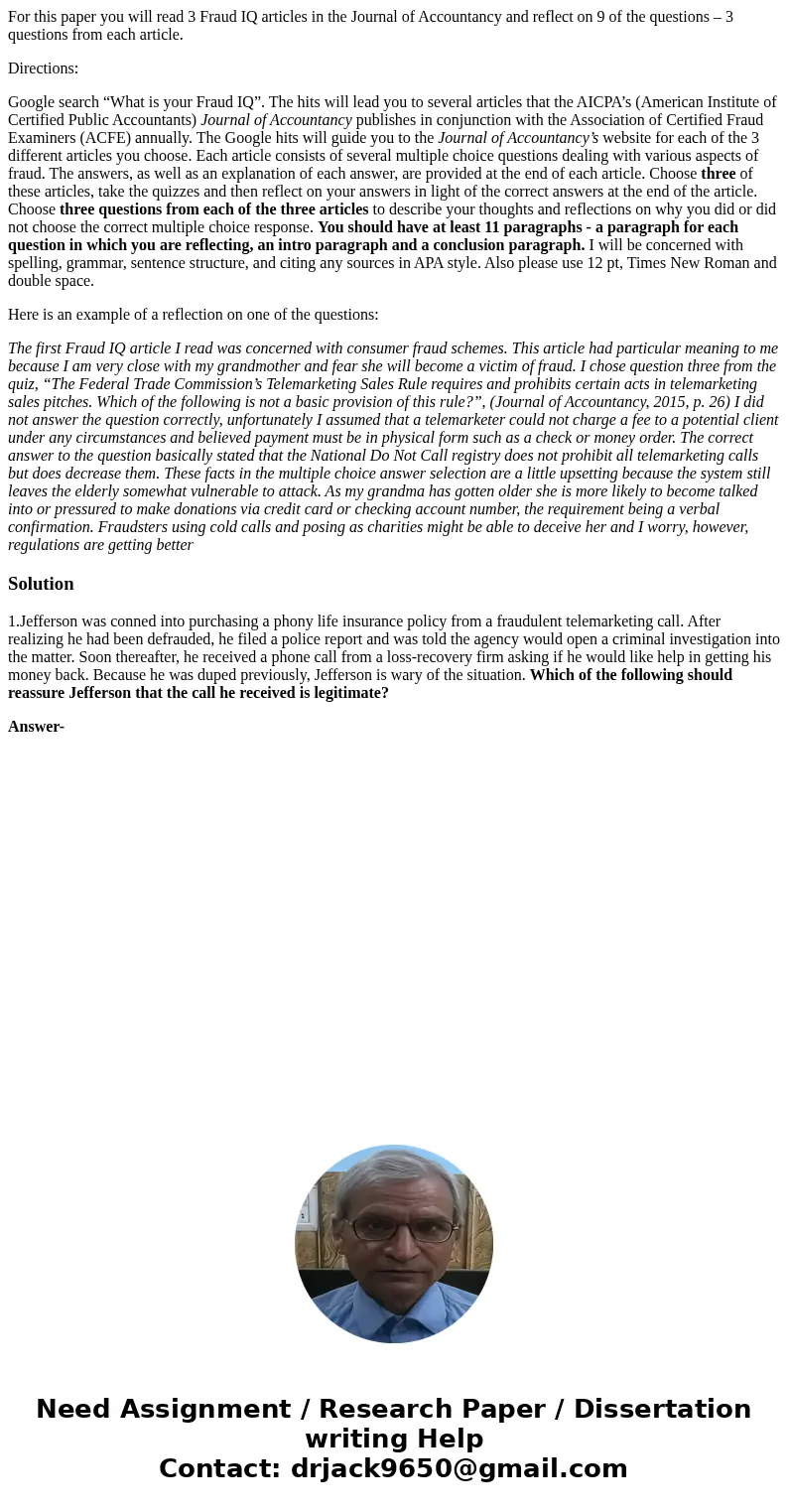For this paper you will read 3 Fraud IQ articles in the Jour
For this paper you will read 3 Fraud IQ articles in the Journal of Accountancy and reflect on 9 of the questions – 3 questions from each article.
Directions:
Google search “What is your Fraud IQ”. The hits will lead you to several articles that the AICPA’s (American Institute of Certified Public Accountants) Journal of Accountancy publishes in conjunction with the Association of Certified Fraud Examiners (ACFE) annually. The Google hits will guide you to the Journal of Accountancy’s website for each of the 3 different articles you choose. Each article consists of several multiple choice questions dealing with various aspects of fraud. The answers, as well as an explanation of each answer, are provided at the end of each article. Choose three of these articles, take the quizzes and then reflect on your answers in light of the correct answers at the end of the article. Choose three questions from each of the three articles to describe your thoughts and reflections on why you did or did not choose the correct multiple choice response. You should have at least 11 paragraphs - a paragraph for each question in which you are reflecting, an intro paragraph and a conclusion paragraph. I will be concerned with spelling, grammar, sentence structure, and citing any sources in APA style. Also please use 12 pt, Times New Roman and double space.
Here is an example of a reflection on one of the questions:
The first Fraud IQ article I read was concerned with consumer fraud schemes. This article had particular meaning to me because I am very close with my grandmother and fear she will become a victim of fraud. I chose question three from the quiz, “The Federal Trade Commission’s Telemarketing Sales Rule requires and prohibits certain acts in telemarketing sales pitches. Which of the following is not a basic provision of this rule?”, (Journal of Accountancy, 2015, p. 26) I did not answer the question correctly, unfortunately I assumed that a telemarketer could not charge a fee to a potential client under any circumstances and believed payment must be in physical form such as a check or money order. The correct answer to the question basically stated that the National Do Not Call registry does not prohibit all telemarketing calls but does decrease them. These facts in the multiple choice answer selection are a little upsetting because the system still leaves the elderly somewhat vulnerable to attack. As my grandma has gotten older she is more likely to become talked into or pressured to make donations via credit card or checking account number, the requirement being a verbal confirmation. Fraudsters using cold calls and posing as charities might be able to deceive her and I worry, however, regulations are getting better
Solution
1.Jefferson was conned into purchasing a phony life insurance policy from a fraudulent telemarketing call. After realizing he had been defrauded, he filed a police report and was told the agency would open a criminal investigation into the matter. Soon thereafter, he received a phone call from a loss-recovery firm asking if he would like help in getting his money back. Because he was duped previously, Jefferson is wary of the situation. Which of the following should reassure Jefferson that the call he received is legitimate?
Answer-

 Homework Sourse
Homework Sourse